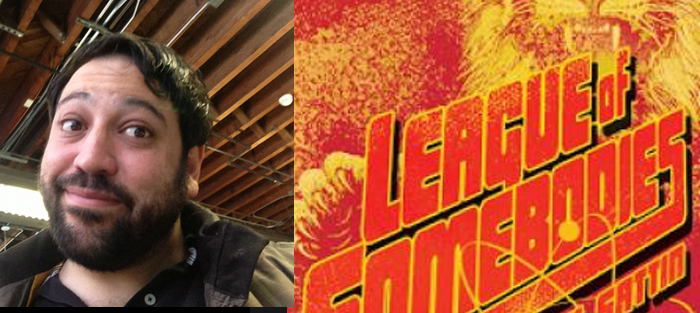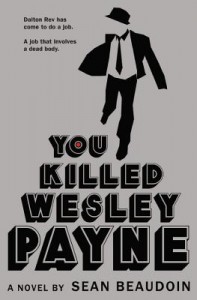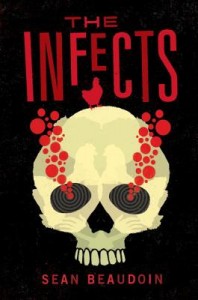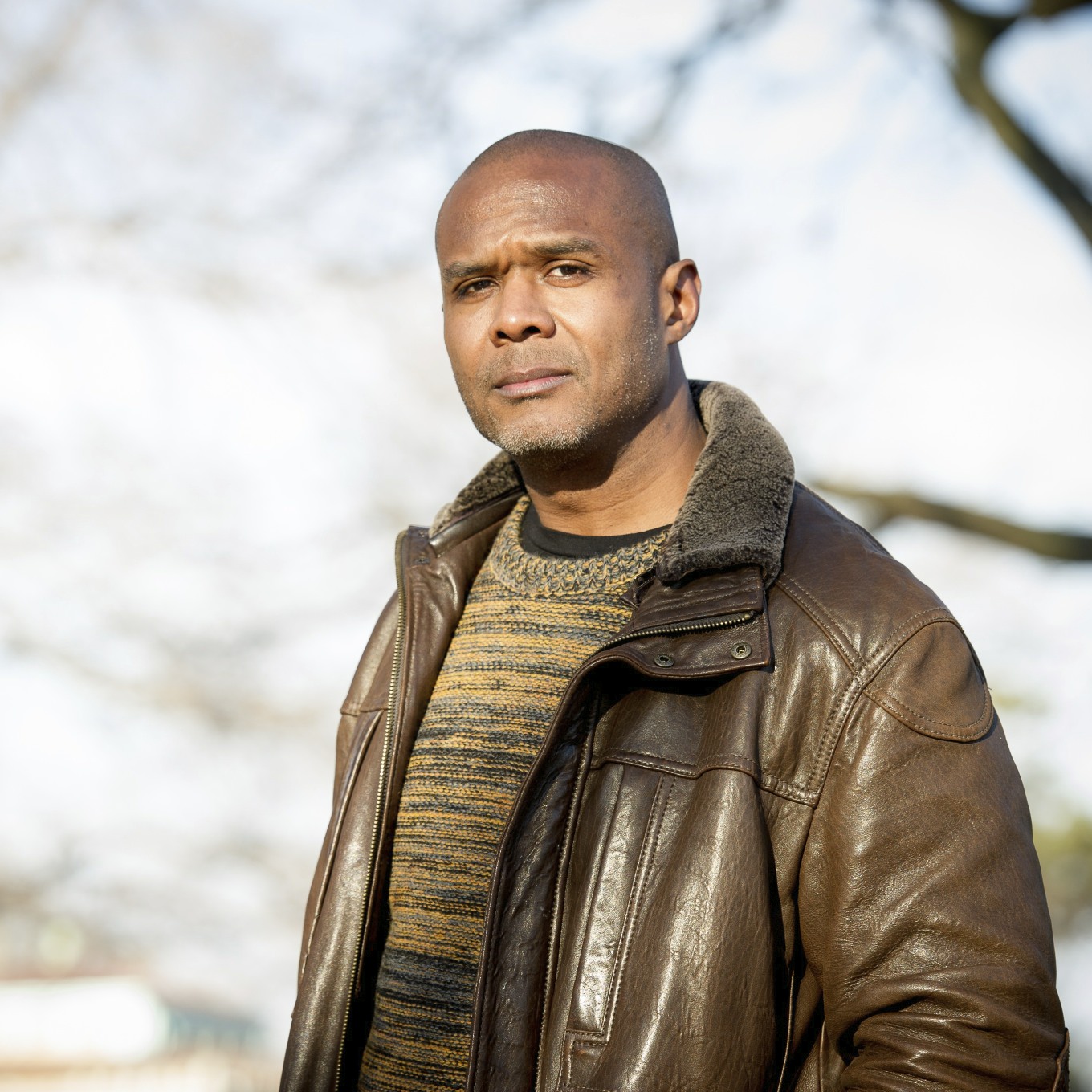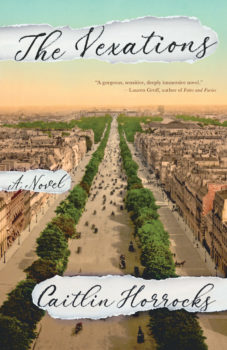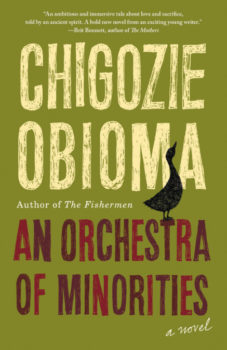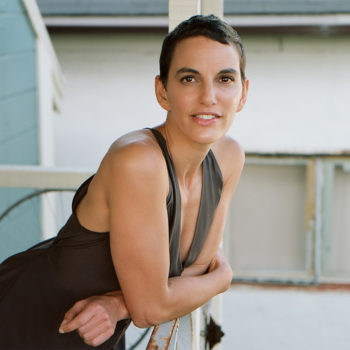It’s not often that I come across a book-length skewering of genre conventions that is also an extended homage to genre itself. League of Somebodies (Dark Coast Press) is a rare gem—rude and inventive, while remaining true to the lineage from which it rose. The story follows one Lenard Sikophsky, whose father Fearghas has been feeding him plutonium since infancy. Based on the teachings of the esoteric Manaton, a mysterious book that concerns all things manly—from shaving body hair to attracting specific types of females—Fearghas attempts to mold Lenard into his notion of the pinnacle of masculinity: a real-life superhero. Bottom line, it’s flat out hilarious. As a reformed comics nerd and obsessive movie viewer, I found League of Somebodies to be a thoroughly enjoyable wallow in just the sort of language and culture that has always made a part of me want to spend my free evenings in rubber mask and red tights. And for that small taste of the gleefully transgressive, I owe Mr. Sattin a debt of gratitude.
This interview was conducted via a series of vicious and mean-spirited emails that were only later softened for the benefit of the reading public.
Interview:
Sean Beaudoin:I should start by mentioning that even as a kid I was always that guy who wanted the villain to win. I wanted Batman to fall into the shark tank and Superman to be locked into a kryptonite Speedo and the Fantastic Four to go down in their invisible plane, never to be seen again. It made me angry that the villains were always somehow thwarted, usually on the thinnest of pretexts.
Samuel Sattin: You should read The Last Ringbearer. Published in Russia by Kirill Yeskov in 1999, the story recounts Tolkien’s Lord of the Rings from Mordor’s perspective. It is nuts. Superman: Red Son is worth checking out, too. Mark Millar wrote it. The comic imagines what would have happened to Superman if he’d landed in Soviet Russia as opposed to corn fed Kansas. Either way, I can give you the number of my therapist. He dresses in Speedos and has a Batman-logo embroidered tissue box.
My favorite superhero was Prince Namor—The Submariner. Probably because he was always annoyed and melancholy. He hated humans, thinking they were duplicitous and ignorant. And that they were polluting his ocean. So, you know, he was right on the money.
He was. And for a dour Atlantean with daddy issues he had no problem whatsoever wearing the flashiest pair of gold-scaled underwear in all the seven seas (you could see his crotch a comin’ a nautical mile away!). But…I do have one small quibble: is Namor really a superhero? I’ve always seen him as undecided, somewhere between friend and foe. An antihero, like Magneto. He’s always interested me for that reason. As far as bad guys, I always liked Lex Luthor, myself. Mostly because he’s this super genius who can’t figure out for the life of him that Clark Kent and Superman are the same person.
Namor isn’t a superhero? I guess that shows you my mentality at age eleven. Of course, I was also really into KISS. I suppose now you’re going to tell me Gene Simmons isn’t a superhero either.
Now that, sir, I would never do.
The concept behind your novel—a father trying to turn his son into a superhero by essentially poisoning him with plutonium—is a hilariously unique take on the form. Was it hard to keep the “joke” going over the course of the narrative?
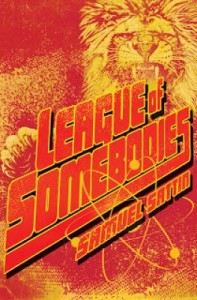 That’s a good way to look at it. I think a lot of books succeed or fail based on whether or not they’re able to keep the “joke” going until it reaches critical mass. It’s the same thing as making a pact with the reader, right? Or drinking excessively without throwing up?
That’s a good way to look at it. I think a lot of books succeed or fail based on whether or not they’re able to keep the “joke” going until it reaches critical mass. It’s the same thing as making a pact with the reader, right? Or drinking excessively without throwing up?
A genuine talent.
Indeed. I put a lot of energy into trying to ensure League would live up to the promises it made. And I recognize that concept itself is problematic, being that people will interpret that promise in different ways. An editor at Gawker said the following of my effort: “If there was an alternate reality where comics god Jack Kirby taught a postgrad ‘religion and superfamilies’ lecture, this would be Sam Sattin’s final paper. He’d get an A-, mind you, with grades taken off for impertinence and sarcasm.”
For me, that A- was key. Of course being thought of as a student of the King was a huge compliment in itself, but being regarded as successfully impertinent was even better. It made me think that I’d really done my job. I’d wanted to write something that could be seen as lauding and critical at the same time. I think that’s the best kind of art.
Wait, how do I get an editor at Gawker to compare Wise Young Fool to Legs McNeil’s Please Kill Me?
You ransom family members, of course!
What you said earlier about villains and heroes, however, namely, having a disdain for altruism, interests me. I have an ambiguous relationship with the comics genre myself—not because I think it’s any goofier then any other self-approved “higher” category of expression, but because I think it funny that the majority of those drawing these muscled, pajama-laden individuals are dateless, fat and/or scrawny. All some species of outsider. It would be one thing if heavyweight Olympian squatters were sketching out epic battles over the skies of Metropolis. But the irony is far more compelling. Even Peter Parker, noticeably unremarkable in terms of physical stature as a lanky teenager, becomes a model of fitness after slapping on his suit. From my vantage it’s all a projection of male insecurity, which is not necessarily a bad thing. The way it’s being reconciled in comic book culture is via positive character reinforcement. Good looks and strength paired with intelligence, compassion, empathy, and humility, as opposed to avarice, greed, and stoicism. This combination of elements I’ve fallen in love with. I think it displays the complex manner in which we perceive ourselves.
If the wheels behind the Spiderman franchise were smart, the next installment would feature Peter Parker coming way, way out of the closet. That would instantly make him a thousand percent more compelling. Not to mention explain his devotion to Aunt Bee or his ability to sew a uniform. The sexuality of superheroes is one of their most frustratingly ignored aspects. Let’s face it, I couldn’t care less if Superman makes the earth spin backward to revive Lois Lane, but I would definitely be interested in reading a comic about how he and Lois killed a weekend exploring a super-version of Last Tango to Paris.
Or if Superman made the earth spin backward because he forgot a prescheduled mimosa brunch in the Castro. Seriously, you make a great point. And one that’s being explored currently. Batwoman, for example, was created originally to act as a love interest for Batman because the Bruce Wayne/Robin sleepover parties were getting a little too risqué for the 50s. But the 2005 DC reboot featured her as a Jewish lesbian—a major defeat for the dark forces of censorship. X-Men recently featured a gay marriage scene on its cover between Northstar and his partner, Kyle, as well. And then there’s Alan Scott, one of the newest, and gayest, Green Lantern…Things are definitely changing, but that doesn’t mean there’s a lot more to be done. Comic books as a whole are arguably the freest art medium out there, but superheroes need to catch up with the times.
I knew I wanted to be a writer when I was sixteen. Mostly because I loved to read, and English tended to be an area where I was routinely praised, unlike almost all the rest of my classes. Was writing something you always thought you would do, or did it sort of fall into your lap?
I had a similar experience with lit classes. They were the only ones I did well in, and there’s that rote praise-sensor that goes haywire when you’re patted on the back for comprehending Animal Farm. I always loved books. I grew up mostly reading fantasy—Eddings, Tolkien, Beagle, Brooks, Niven, Anthony—and then journeyed on into more complex work in high school and college. I wanted to write ever since I started reading, but I don’t think that want translated into ability. Like most beginners, I didn’t understand the work, time, commitment, and, to be frank, banality that went into writing stories. It was one thing to screw around once a month and hammer out some inaccessible piece of solipsism only you could relate to. It was another entirely to actually read a real novel—a good novel—try to understand what makes it that way, and then attempt to do the same thing. That’s when time becomes an element, and you find that you’ll be spending a shitload of it attempting to figure out how to create something another person would want to pay $18.99 to spend sixteen hours of their lives reading. The whole process was humbling. As far as a timeline, I decided I was really going to go for it at twenty-four, when it finally clicked that I’d have to work hard to turn a tired dream into reality. Then I started doing that work, and seven years later, here I am.
When I was in college in the mid-nineties I was heavily influenced by titles like Yummy Fur, American Splendor, Peepshow, Hellblazer, Watchmen, Eightball, Reid Fleming, and Stray Toasters. What were your comic influences, and was bringing a literary bent to your novel as natural as it seems on the page?
I love Alan Moore as well—although I do think From Hell was ridiculous. Sometimes he just gets a little too prophet-y for my taste. But Watchmen is probably one of the best books ever, so there’s that. I’m also a huge fan of Hellblazer, Sandman, and anything written by Brian K. Vaughan (Saga is incredible). There’s Grant Morrison, Warren Ellis, Matt Fraction, Rutu Modan. Though I think he’s taking a piss, Chris Ware has grown on me. And I’m a fan of Brian Azzarello’s new Wonder Woman. I read a lot of these things. I have a hard time pinning down a favorite because there’s just so much good stuff out there.
As a writer of Young Adult novels, I run into the same condescension with regularity. It’s as if people think that the formative emotions that powered them into college no longer exist. They have a dorm and a roommate and an entirely different personality. But the fact is that we all spend the rest of our lives trying to live up to (or live down) who we were as teenagers. Why is the exploration of those themes any more or less literary than a novel about Manhattan chemistry professors getting divorced?
Yea, that really chaps my nuts. The literary world really can’t take criticism, and the roots of the modern novel derive from the upper class, where a select few could actually read, never mind appreciate, critique, and direct the future of the craft. That sentiment has, in my opinion, carried on into the present day. I myself happen to think that YA is incredible. The Giver is still one of my favorite books. I grow furious when arbiters of high art attempt to distance themselves from the rabble by swearing off the imagination. It’s stupid. It’s myopic. It’s bad for books. One of the things I love most about comic shops specifically is that they just don’t have the boundaries many bookstores rely upon. There’s no “literary comics” shelf that’s given precedence over “science fiction/fantasy.” The world of panel art is a free society where Chris Ware stands proudly beside Mike Mignola, sandwiched between Robert Kirkman, Craig Thompson, and Dash Shaw. The literary world needs to take a lesson from this model, understanding that it only hurts itself by ghettoizing other forms of expression. Right now they have a pat-your-own-back-until-you-feel-better system. It can be spineless.
I had the great fortune of reading Watchmen one comic at a time as they came out, checking my campus comics shop regularly waiting for the next issue. The graphic novel is a great innovation, I’m sure, but reading that way really made it an experience.
I’m jealous of you. I would have loved to do that. I think a lot of people like graphic novels because it allows them to marathon series, like people do with seasons of television shows. You can either consume Game of Thrones one episode at a time or glut it all down in one lazy weekend. Either way, I’m a huge fan of reading them as they come. There’s this excitement behind picking up the issues while they’re hot. And of course there’s the aspect of collectability. Right now I’m doing that with Saga and I couldn’t be happier.
Three generations of superheroes attempt to reconcile their upbringings with the pressure of changing times and cultural evolution in League. Is this book about your relationship with your father? Or with your cultural tradition?
Definitely. Or maybe not. I think that everything works its way in, if you know what I mean. I’m interested most of all in the way that families, especially immigrant families, attempt to reinvent themselves in the new world. How do we pass on now irrelevant traditions? How do we communicate with our children when we see they’re different than we were growing up? Also, of course, there’s the issue of cultural, religious, and ethnic identity. Me growing up as an ethnic Jew in a family that didn’t value the religion but put a lot of emphasis on tradition was definitely cobbled into the identity of this book. Looking at where your people are 5,000 years after they became one provides ground for deliberation.
Do you think superheroes themselves change/evolve with generations, and if so, what lies in store for the future of the genre itself?
Oh, absolutely. Not only can you draw a history of the medium from reading a few decades of superhero comics, you can draw a history of the country itself. You can see what we were thinking—or feeling, rather. How paranoid we were. How our minds were closed. Superheroes evolve similarly. Being that the medium typically acts as ground for progressivism, caped crusaders tend, for a good part, to substitute for the canary in the coal mine. If it’s happening in a comic book, there’s a good chance there’s a storm on the horizon. So yes, I’d say that superheroes evolve as we do, trying to stay ahead of the curve.
How do you imagine your perfect League of Somebodies reader?
It’s funny. Even though League has a lot of humor leveled at men, I always imagined writing it for a readership comprised heavily of women. The first and greatest champion of the book was Cristina Garcia, a novelist, friend, and feminist, who truly impelled me to get League out into the world. I could see how some people might view the book a little too literally, not getting the “joke,” as you mentioned earlier. But it’s my hope that a substantial amount of readers will understand that this male-centered book is also a heavily male-critical book, with the entire gender itself on the chopping block.
What’s on the horizon for you? Are you working on any new projects?
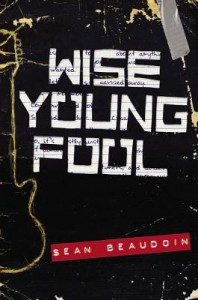 A couple of things, actually. A novel called The Silent End, which is a creepy tale of a group of children attempting to kill a monster in a small town. I’m really enjoying where it’s going. Also, I’m happy to say, I’ll be working on an actual comic book. My first one! I’ve found a brilliantly talented artist to work with, so we’ll be putting together a couple issues in the next couple of months. I’ll keep the details under wraps until we get some pages together, but I’m excited.
A couple of things, actually. A novel called The Silent End, which is a creepy tale of a group of children attempting to kill a monster in a small town. I’m really enjoying where it’s going. Also, I’m happy to say, I’ll be working on an actual comic book. My first one! I’ve found a brilliantly talented artist to work with, so we’ll be putting together a couple issues in the next couple of months. I’ll keep the details under wraps until we get some pages together, but I’m excited.
What about you? Are you working on anything currently?
Hey, thanks for asking! My latest novel, Wise Young Fool, comes out August 6th. It’s sort of a raw-throated punk-rock black-comedy love story. There are zero superheroes involved, unless you count Ian from Fugazi.
Further Links and Resources:
- For more on Samuel Sattin and his work, please visit the author’s website.
- You can also read the first chapter of his book via Gawker.
- Sattin writes for Salon about “connecting with [his] inner Dungeon Master” in the essay “Dungeons and Dragons: My Dorky Literary Muse.”
- Also from Salon: Kirill Yeskov explains why he reimagined Tolkien’s classic The Lord of the Rings from Mordor’s perspective in his novel The Last Ringbearer.
- For more on Sean Beaudoin and his work, please visit the author’s website.
- Check out the trailer for Beaudoin’s newest novel, Wise Young Fool.

